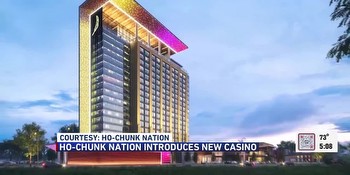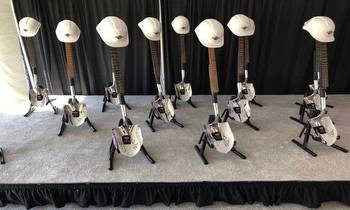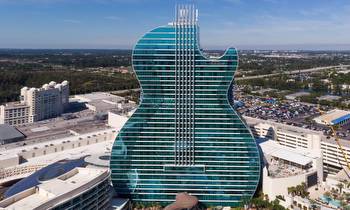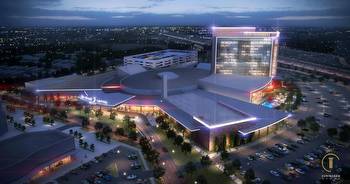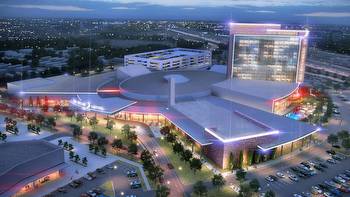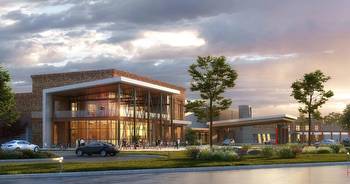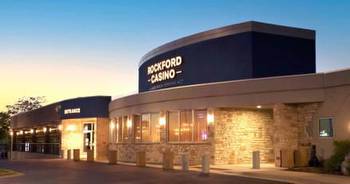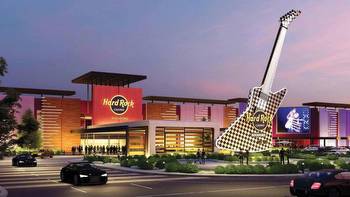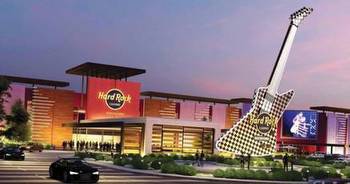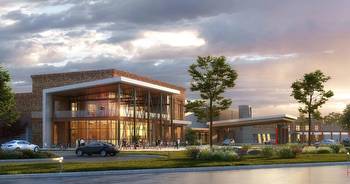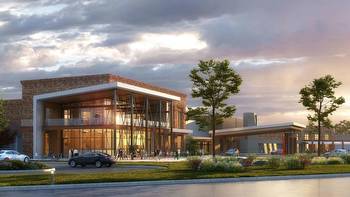Beloit casino project took key step forward in 2021

BELOIT—The Ho-Chunk Nation’s Beloit casino and resort project may not have broken ground in 2021, but the project took key administrative steps forward as officials from the tribe and City of Beloit look forward to initial construction this year.
Last year was far from quiet for the project even without shovels in the ground. Wisconsin Democratic Gov. Tony Evers issued a concurrent decision aligning with the federal Bureau of Indian Affairs (BIA) on March 24, 2021.
Evers said he agreed with the U.S. Department of the Interior’s decision from April of 2020 that 32 acres of land be designated for the project in trust status adjacent to Interstate 39/90 near Willowbrook and Colley roads. The move puts the project one step closer to realizing a dream decades in the making.
With Evers’ concurrence, the Department of the Interior’s Bureau of Indian Affairs will prepare the determination and begin the final administrative process for accepting the land into trust status for the Ho-Chunk Nation.
The Ho-Chunk Nation called Evers’ approval “an economic win for the Nation, the Beloit area and State of Wisconsin.”
Ho-Chunk Public Information Officer Ryan Greendeer said the move by Evers helped move the project forward.
“The Nation anticipates that the final hurdle, the Interior taking the land into trust, will happen soon. So we are still hoping for a groundbreaking this year,” Greendeer said.
Beloit City Manager Lori Curtis Luther said the city was “thrilled” to see the project take a key step forward last year following initial approval of the project in March of 2020.
“We eagerly anticipate final approvals so that construction can hopefully begin soon,” Luther said. “The City of Beloit looks forward to being a good partner to the Ho-Chunk Nation for the years to come.”
In October of last year, the tribe conducted initial work at the casino site that was tied to the final designs of the project. A contractor for the tribe conducted geotechnical soil borings around the site. The borings are critical to understanding the soil structure below the property. The use of borings requires digging holes at depths up to 75 feet to obtain soil samples that are undisturbed as possible through techniques known as the long split-spoon and piston samplers. The borings will help the design team and geologists to understand the soil bearing pressure, the active soil load, location of groundwater tables and the soil layer characteristics.
The use of the soil samples actually plays into the final design of the $405 million complex and the project can’t move forward without them. The site work allowed the tribe’s structural engineer to design the diameter and depth of the concrete piles and caissons required for the foundations of the buildings.
In December of 2021, the tribe also announced plans to allow sports betting at all of its gaming facilities in Wisconsin.
Greendeer confirmed an amendment is currently in the works for the tribe’s compact agreement with the state to allow sports betting.
As previously reported by the Beloit Daily News, the gaming and family entertainment destination is projected to bring about 1,500 permanent jobs and “thousands” of construction jobs to the Beloit area, the tribe said following Evers’ action last spring.
Once fully-developed, the site may feature a 300-room hotel, five restaurants and 2,200 slots along with 50 table games in the casino. The project is expected to also include a 40,000-square-foot water park, an employee child care facility and 30,000-square-foot conference center and entertainment venue.
Beloit Casino History
The idea for a tribal casino in Beloit dates back to the 1990s. A referendum on a tribal casino in Beloit was approved by a majority of Beloit voters in 1999.
The Bad River Lake Superior Chippewa and the St. Croix Chippewa made a proposal to establish a casino in Beloit, but in 2001, the application to place the land for the casino in trust was rejected by the U.S. Department of Interior. Then, the casino proposal was rejected by the Bureau of Indian Affairs in 2009.
In 2009, the Ho-Chunk Nation purchased 30 acres of land where the Chippewa bands had planned to build a casino. The Ho-Chunk purchased 41 acres of land in the area from the City of Beloit in 2013 and moved forward with its own casino project application starting in 2012.
On April 16, 2020, the U.S. Department of Interior approved the Ho-Chunk proposal for a Beloit casino by issuing an approval of land into trust status for a portion of the 70-acre property.
On March 24, 2021, Evers ruled in favor of moving a portion of the project’s land to trust status for the tribe, with the project waiting on a final transfer of land to trust status by BIA before construction can begin.
Rockford Hard Rock Casino
Just down the interstate in Rockford, Hard Rock International’s casino project took major steps forward in 2021, with the effort opening a temporary gaming facility that’s drawn in high revenue in its opening months.
On Jan. 27, the Illinois Gaming Board approved the final license needed for the permanent Hard Rock location at the former site of the Clock Tower resort next to I-39/90. In Illinois, six new casinos were approved in the gaming expansion legislation approved in 2019, with Rockford’s proposal being the first to reach many steps needed in the process, according to the City of Rockford.
The Hard Rock casino is “targeting a spring groundbreaking” for the permanent casino site. Currently a temporary gaming facility, known as Rockford Casino: A Hard Rock Opening Act, is open for gaming operations.
The temporary facility has seen strong revenue figures since opening two months ago. In November and December of 2021, the casino brought in over $8.46 million in revenue, data from the Illinois Gaming Board shows. In the first 22 days of opening, Rockford’s temporary casino brought in over $4.14 million in revenue. In total, the Illinois Gaming Board requires payments of over $1 million in state taxes and $504,361 in local taxes. The temporary facility does not have table games and has over 600 slot machines and electronic table games.
In response to questions regarding whether the Beloit facility would have a temporary casino location, Greendeer declined to comment.








